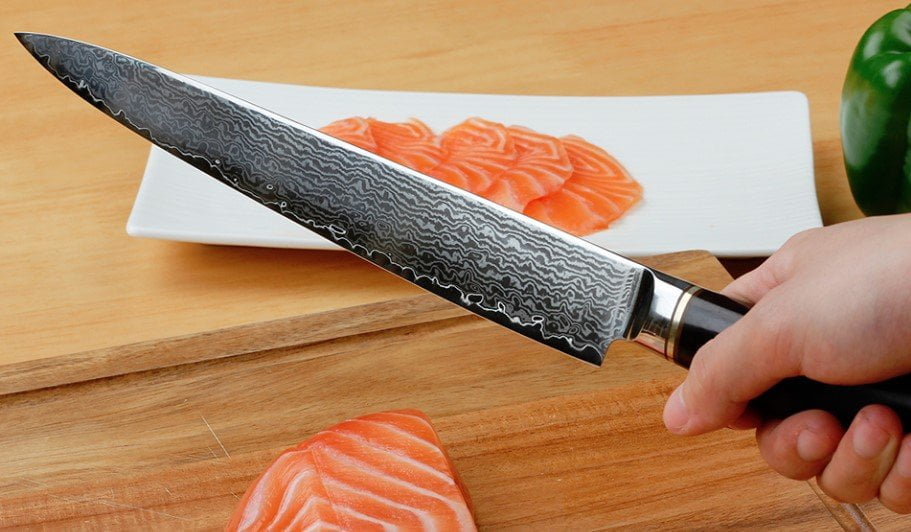In the vibrant realm of culinary arts, where craftsmanship and accuracy reign supreme, Damascus knives are regarded with utmost admiration. Known for their stunning patterns and remarkable sharpness, these blades require more than standard upkeep. This comprehensive guide will provide detailed care instructions for Damascus knives, ensuring your cherished tools maintain their impressive performance and longevity.

The Unique Appeal of Damascus Steel
The intricate designs adorning Damascus steel knives go beyond aesthetics; they signify the painstaking forging techniques that have been honed over centuries. Celebrated for their outstanding cutting precision and durability, maintaining these knives calls for tailored strategies. For an in-depth look at the history and makeup of this extraordinary steel, check out this article.
Basic Cleaning: Gentle Care for Perfection
To preserve the distinct beauty and sharp edge of your Damascus knives, regular cleaning is crucial. After each use, gently wash the blade with mild soap and warm water, steering clear of harsh abrasives that can damage the steel's delicate patterns. Remember to dry the knife thoroughly to avoid rust formation.
Tip: Dishwasher Dangers
Though using a dishwasher may seem tempting, it can cause severe harm to your Damascus blades. The high temperatures, moisture, and strong detergents can be detrimental, making it essential to wash them by hand only.
Sharpening Techniques for Damascus Knives
Proper sharpening is key to preserving both the sharpness and functionality of your Damascus knife over the years. Utilize a high-quality whetstone, preferably one with a fine grit, to hone the blade meticulously. Mastering the appropriate sharpening angle is vital for achieving optimal results.
Maintaining Damascus Patterns
In addition to regular sharpening, applying a light coat of mineral oil can protect the blade from moisture and enhance the visibility of its stunning pattern. This simple step helps maintain its shine and guards against oxidation.
Storage Strategies: Ensuring Safety and Longevity
Storing your Damascus knives correctly is just as important as cleaning and sharpening. A wooden or plastic knife block effectively prevents dulling and keeps the blade protected. Using knife sheaths is another excellent choice for safe storage, especially if you frequently transport your knives.

Addressing Common Damascus Knife Issues
Despite your best care practices, problems like tarnishing or dullness may arise. For expert advice on tackling these challenges, consider visiting Cangshan knife review.
Frequently Asked Questions
-
Why is my Damascus knife rusting?
Ensure the knife is thoroughly dry and consider applying a protective oil layer to shield it from moisture. Use only soft cleaning materials. -
What should I do if my knife gets dull?
Invest in a high-quality whetstone and be diligent about sharpening regular. Professional sharpening services can also help restore your knife's edge when needed. -
Can I use Damascus knives for any cutting task?
While they are versatile tools, avoid using them on exceptionally hard surfaces or frozen items to preserve the edge.
By adhering to these care instructions for Damascus knives, you're not only safeguarding a piece of craftsmanship but also paying tribute to an age-old tradition rooted in masterful forging techniques. For those interested in further exploring the science behind these remarkable blades, visit HowStuffWorks for insightful information.
This article contains affiliate links. We may earn a commission at no extra cost to you.


























